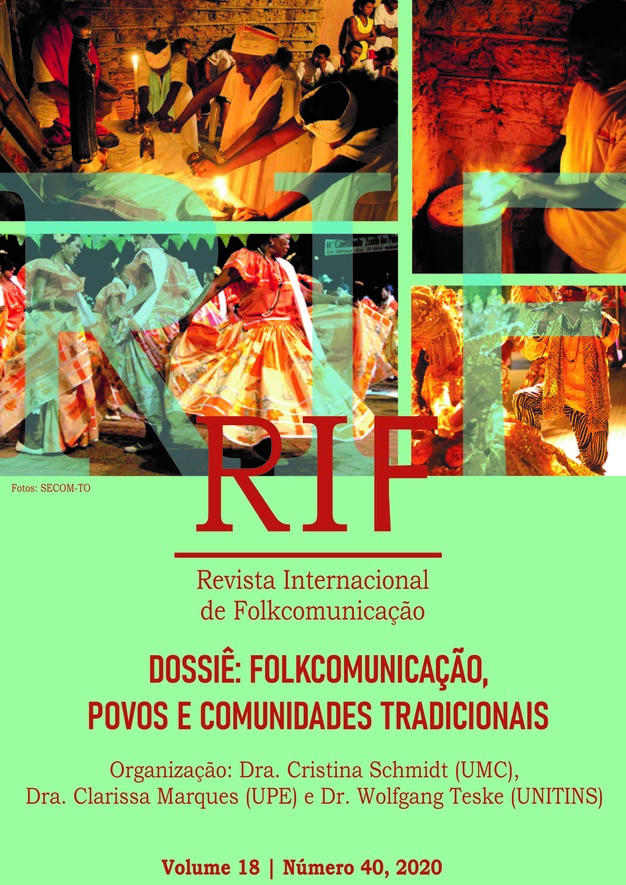The construction of territoriality by the quilombola population of Muquém
DOI:
https://doi.org/10.5212/RIF.v.18.i40.0001Abstract
In this research, we start from the assumption that the construction of identities is also linked to the territorial organization and the way the territory is perceived by those who experience it. It was developed in the quilombola community of Muquém, located in Alagoas and formed by about 120 families. In this way, this study analyzes the representations of how individuals organize themselves in space, print themselves and reflect on it, describing a world where people fight for recognition, encounter many prejudices and discrimination, as well as, wish to express their perception of the world and survive from your art. Our general objective is to understand how the population of Muquém builds its territoriality, as well as, how this territorialization is permeated by the effects of coloniality. To this end, we used the qualitative methodology of life history and interviewed one of the leaders of that community. The data show the tensions and permanences in the history of this community, the conflicts arising from the more intense presence of the State in the organization of the territory and the educational fragility in strengthening the quilombola identity. In this scenario, the study shows that the territory where the subject is inserted cannot be disregarded as a cultural element that constitutes his identity. Territoriality; Coloniality; Muquém's Community.
Downloads
Downloads
Published
How to Cite
Issue
Section
License

Este obra está licenciado com uma Licença Creative Commons Atribuição 4.0 Internacional.
Os autores são responsáveis, em qualquer que seja o formato do texto, pelas opiniões expressas ou indiretas presentes em seus respectivos trabalhos, não endossáveis pelo Conselho Editorial e pelos editores da Revista, bem como pela autenticidade do trabalho. Ao publicar trabalhos na Revista Internacional de Folkcomunicação, os autores cedem automaticamente os direitos autorais à publicação para veiculação das produções acadêmicas, sem ônus para a Revista. Os autores detêm os direitos autorais do texto para o caso de publicações posteriores e concedem à Revista Internacional de Folkcomunicação o direito de primeira publicação, com o trabalho simultaneamente licenciado sob a Creative Commons Attribution License, que permite o compartilhamento do trabalho com reconhecimento da autoria e publicação inicial nesta Revista. Por serem publicados em revista de acesso livre, os artigos são de uso gratuito, com atribuições próprias, em atividades educacionais e não-comerciais, sendo permitida a publicação simultânea em repositórios institucionais.































